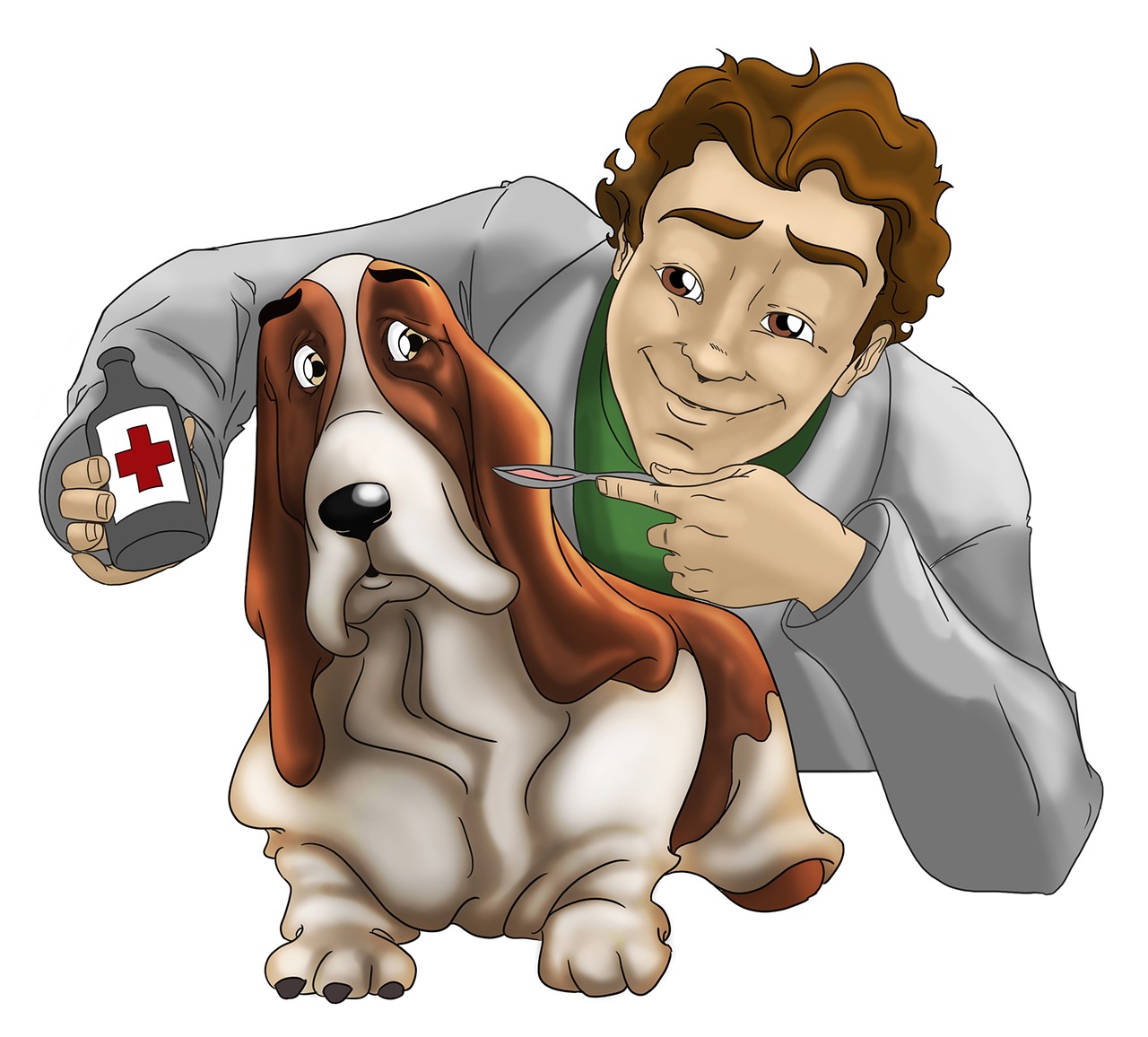If you’re a dog owner, you know that your furry friend is more than just a pet – they’re a member of your family. As such, you want to make sure that they’re healthy and happy at all times. One way to do that is by ensuring that they have access to the best over-the-counter medications.

When it comes to over-the-counter medications for dogs, it’s important to know which ones are safe and effective. While there are many options available, not all of them are created equal. Some may be ineffective, while others may be harmful to your dog’s health. That’s why we’ve put together this guide to help you find the best over-the-counter medications for your furry friend.
In this guide, we’ll cover a range of over-the-counter medications that are safe and effective for dogs. We’ll also provide information on how to use them and what to look out for to ensure that your dog stays healthy and happy. So, whether you’re looking for pain relief, allergy relief, or just want to keep your dog healthy, this guide has got you covered.
Understanding Over-The-Counter Medications

When it comes to taking care of your furry friend, it’s important to understand what over-the-counter medications are and how they can help. Over-the-counter medications, also known as OTC medications, are drugs that can be purchased without a prescription. These medications are typically used to treat mild to moderate symptoms and can be found at your local pharmacy or grocery store.
It’s important to note that not all over-the-counter medications are safe for your dog. Some medications can be harmful or even deadly if given in the wrong dose or to the wrong species. Always consult with your veterinarian before giving your dog any medication, including over-the-counter medications.
Over-the-counter medications come in different forms such as tablets, capsules, liquids, and creams. They can be used to treat a variety of symptoms such as pain, inflammation, allergies, and digestive issues. Some common over-the-counter medications for dogs include:
- Benadryl (diphenhydramine) – used to treat allergies and itching
- Pepcid (famotidine) – used to treat stomach ulcers and acid reflux
- Imodium (loperamide) – used to treat diarrhea
- Aspirin – used to treat pain and inflammation
It’s important to follow the dosing instructions on the medication label and to never exceed the recommended dose. Giving your dog too much medication can cause serious harm or even death.
In conclusion, over-the-counter medications can be a helpful tool in treating mild to moderate symptoms in your dog. However, it’s important to always consult with your veterinarian before giving your dog any medication and to follow the dosing instructions carefully.
Safe OTC Medications for Dogs

If your dog is experiencing mild symptoms and you’re looking to treat them at home, there are a few over-the-counter (OTC) medications that may be safe for your furry friend. However, it’s important to always consult with your veterinarian before giving your dog any medication, as some OTC medications can be harmful to dogs.
Antihistamines for Allergy Symptoms
If your dog is experiencing allergy symptoms such as itching, sneezing, or runny nose, antihistamines may be a safe option to consider. Some common antihistamines that may be safe for dogs include Benadryl (diphenhydramine), Claritin (loratadine), and Zyrtec (cetirizine). However, it’s important to note that not all antihistamines are safe for dogs, and dosages will vary depending on the size of your dog. Always consult with your veterinarian before giving your dog any medication.
OTC Medications for Digestive Issues
If your dog is experiencing digestive issues such as heartburn, indigestion, or diarrhea, there are a few OTC medications that may be safe to give your dog. Some options include Pepcid (famotidine), Tagamet (cimetidine), and Pepto-Bismol (bismuth subsalicylate). However, it’s important to note that not all digestive medications are safe for dogs, and dosages will vary depending on the size of your dog. Always consult with your veterinarian before giving your dog any medication.
Pain Management with OTC Medications
If your dog is experiencing pain, there are a few OTC pain medications that may be safe to give your dog. However, it’s important to note that not all pain medications are safe for dogs, and dosages will vary depending on the size of your dog. Some OTC pain medications that may be safe for dogs include aspirin and acetaminophen. However, before giving your dog any medication, it’s important to identify the signs of dog pain and consult with your veterinarian to determine the best course of treatment.
OTC Medications for Eye Issues
If your dog is experiencing eye issues such as dry eyes or an eye infection, there are a few OTC medications that may be safe to give your dog. Some options include artificial tears and eye drops. However, it’s important to note that not all eye medications are safe for dogs, and dosages will vary depending on the size of your dog. Always consult with your veterinarian before giving your dog any medication.
Remember, always consult with your veterinarian before giving your dog any medication, even if it’s an OTC medication. Additionally, be sure to follow dosing instructions carefully and monitor your dog for any adverse reactions.
Potential Risks and Drug Interactions

When it comes to giving your dog over-the-counter medications, it’s important to be aware of potential risks and drug interactions. While some medications may be safe for dogs in certain doses, they can still cause adverse effects, especially when combined with other medications.
Before giving your dog any medication, it’s important to consult with your veterinarian. They can advise you on the correct dosage and potential risks associated with the medication. Additionally, they can help you determine whether the medication is safe to give to your dog based on their age, weight, and overall health.
Some common risks associated with over-the-counter medications for dogs include gastrointestinal upset, liver damage, and kidney damage. Additionally, some medications can interact with other drugs your dog may be taking, causing adverse effects or reducing the effectiveness of one or both medications.
Certain medications, such as nonsteroidal anti-inflammatory drugs (NSAIDs), can be particularly risky for dogs. While these medications can be effective at reducing pain and inflammation, they can also cause gastrointestinal bleeding, kidney damage, and other serious side effects.
To avoid potential risks and drug interactions, it’s important to always follow your veterinarian’s instructions when giving your dog medication. Additionally, you should never give your dog medication intended for humans without first consulting with your veterinarian.
First Aid OTC Medications

As a responsible pet owner, it’s important to have a well-stocked first aid kit for your furry friend. Including some over-the-counter (OTC) medications can help you provide immediate care in case of minor injuries or illnesses. Here are two common OTC medications you may want to consider keeping in your dog’s first aid kit:
Antibiotic Ointments
Antibiotic ointments like Neosporin can be used to prevent infection in minor cuts, scrapes, and burns. These ointments contain a combination of antibiotics such as bacitracin, neomycin, and polymyxin B that work together to kill bacteria.
When using antibiotic ointments on your dog, make sure to clean the wound thoroughly with water and mild soap before applying the ointment. Apply a thin layer of the ointment to the affected area 2-3 times a day until the wound heals. Be sure to keep an eye on your dog to make sure they don’t lick or chew the treated area.
Using Hydrogen Peroxide
Hydrogen peroxide is a common household disinfectant that can be used to clean minor wounds and remove debris such as dirt, grass, and foreign objects. It works by releasing oxygen and bubbling up, which helps to flush out the wound.
To use hydrogen peroxide on your dog, dilute it with equal parts of water and apply it to the affected area using a clean cloth or cotton ball. Allow it to bubble for a few seconds, then gently wipe away any debris with another clean cloth or cotton ball. Repeat the process until the wound is clean. Be careful not to use too much hydrogen peroxide as it can damage healthy tissue and delay the healing process.
Remember, while OTC medications can be useful in providing immediate care, they are not a substitute for veterinary care. If your dog’s injury or illness is severe or doesn’t improve within a few days, make sure to contact your veterinarian for proper diagnosis and treatment.
OTC Medications to Avoid

When it comes to over-the-counter (OTC) medications for dogs, not all are safe. Some OTC medications can cause serious harm to your furry friend. As a responsible pet owner, it’s important to know which OTC medications to avoid giving to your dog.
Here are some OTC medications that you should avoid giving to your dog:
- Ibuprofen: Ibuprofen, also known as Advil or Motrin, can cause serious harm to your dog, including stomach ulcers, kidney failure, and even death. Never give your dog ibuprofen or any other non-steroidal anti-inflammatory drugs (NSAIDs) without first consulting with your veterinarian.
- Acetaminophen: Acetaminophen, also known as Tylenol, can be toxic to dogs and cause liver damage and even death. Never give your dog acetaminophen or any other pain relievers without first consulting with your veterinarian.
- Pseudoephedrine: Pseudoephedrine, also known as Sudafed, can cause serious harm to your dog, including high blood pressure, heart palpitations, and seizures. Never give your dog pseudoephedrine or any other decongestants without first consulting with your veterinarian.
- Ranitidine: While ranitidine, also known as Zantac, is sometimes prescribed by veterinarians to treat stomach ulcers and acid reflux in dogs, recent studies have shown that some batches of ranitidine contain high levels of a contaminant called N-Nitrosodimethylamine (NDMA), which is a potential human carcinogen. If your dog is currently taking ranitidine, talk to your veterinarian about alternative medications.
Remember, not all OTC medications are safe for your dog. Always consult with your veterinarian before giving your dog any medication, even if it’s an OTC medication.
When to Consult a Veterinarian

When it comes to giving over-the-counter (OTC) medications to your dog, it is always best to consult with a veterinarian first. Your vet can help you determine the right dosage, frequency, and duration of treatment for your dog’s specific condition.
There are several reasons why it is important to consult with a veterinarian before giving your dog any OTC medications. First, human doses and doses for dogs are different, so it is important to know the correct dose to administer. Additionally, some OTC medications can interact with other medications your dog may be taking, or may not be safe for dogs with certain medical conditions.
If your dog is experiencing symptoms such as vomiting, diarrhea, or lethargy, it is important to seek veterinary care right away. These symptoms could be indicative of a more serious underlying condition, and delaying treatment could put your dog’s health at risk.
In general, if you are unsure about whether or not to give your dog an OTC medication, it is always best to err on the side of caution and consult with a veterinarian. Your vet can help you determine whether or not a particular medication is safe and appropriate for your dog’s specific condition, and can provide guidance on proper dosing and administration.
